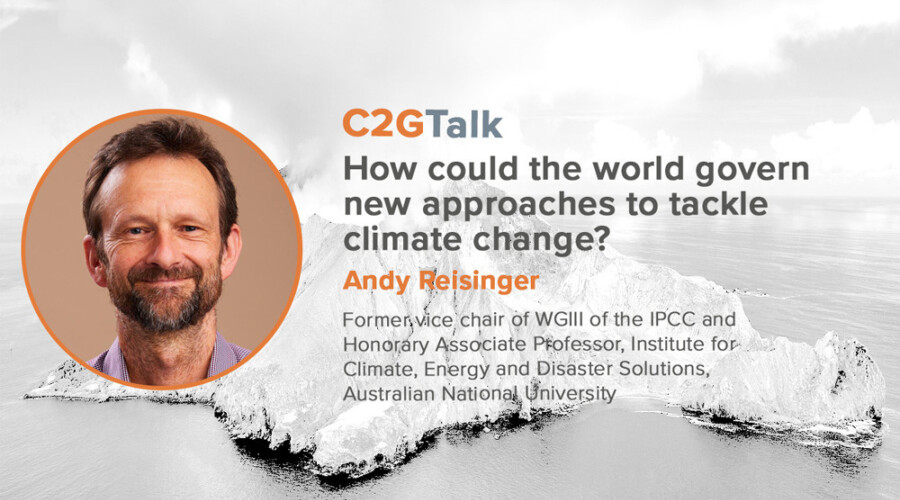The oceans and climate change are inextricably connected. On the one hand, the oceans are faced with significant threats posed by climate change through acidification, loss of oxygen, and warming; on the other hand, the oceans play a critical role in regulating the climate system. A range of additional ocean-based climate-altering approaches are being explored to limit climate impacts. In this "C2GDiscuss," three experts share their views on the potential benefits and risks of these approaches.
This interview was recorded on June 1, 2021, and is also available with interpretation into 中文, Español, and Français.
The oceans and climate change are inextricably connected. On the one hand, the oceans are faced with significant threats posed by climate change through acidification, loss of oxygen, and warming; on the other hand, the oceans play a critical role in regulating the climate system, acting as a major heat and carbon sink, and have been increasingly regarded as a source of solutions to climate change.
A range of additional ocean-based climate-altering approaches are being explored to limit climate impacts. For example, introducing additional nutrients to enhance photosynthesis of plankton to remove CO2 from the ocean surface and transport it to the deep ocean; cultivating large-scale seaweed to capture carbon through photosynthesis for sequestration; and brightening marine clouds through spraying sea water to deliver cooling locally.
However, all these approaches may present potential benefits and risks. What do the ocean protection community and the climate protection community say about these approaches? Is there a panacea for addressing the major environmental and socio-political challenges that these approaches pose? How can their risks and benefits be weighed up against the expected impacts of climate change?
In this C2GDiscuss, three experts share their views on these approaches.
Stefanos Fotiou is director in the Office of Sustainable Development Goals in the Food and Agriculture Organization (FAO) of the United Nations. At the time of this recording, he was the director of the Environment and Development Division in the United Nations Economic and Social Commission for Asia and the Pacific (UN ESCAP).
Kristina M. Gjerde is is senior high seas advisor to IUCN’s Global Marine and Polar Programme (GMPP) and adjunct professor at the Middlebury Institute of International Studies at Monterey, California, where she teaches international marine law.
Joyashree Roy is the inaugural Bangabandhu Chair Professor at Asian Institute of Technology (AIT).
Janos Pasztor (moderator) is executive director of the Carnegie Climate Governance Initiative (C2G).
For more, please go to C2G's website.




